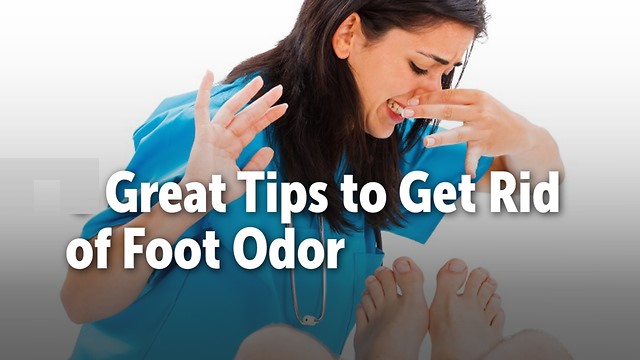Step into a world of freshness with our expert guide on banishing foot odor. Discover the causes behind this common issue and explore a variety of effective, easy-to-follow remedies that promise to restore confidence and comfort to your feet.
Introduction
Foot odor, medically known as bromodosis, is more than just a nuisance; it’s a widespread concern that affects individuals of all ages and lifestyles. Stemming from various causes, this condition can lead to discomfort and self-consciousness. However, with the right knowledge and care, overcoming foot odor is entirely achievable. This article explores the underlying causes of foot odor and offers a suite of remedies to effectively combat it.

Table of Contents
Understanding the Causes of Foot Odor
Understanding the causes of foot odor is essential for tackling this common yet embarrassing issue effectively. Here’s a deeper dive into the primary factors contributing to smelly feet and how they create the perfect storm for odor development.
1. Bacteria: The Invisible Culprits Behind Foot Odor
Sweat’s Role
Human feet are among the body’s most sweat-prone areas, with thousands of sweat glands per square inch. While sweat itself is odorless, it becomes a fertile breeding ground for bacteria. These microorganisms feast on the sweat, breaking it down into acidic byproducts that emit a stinky odor.
The Perfect Home for Bacteria
Shoes and socks not only absorb sweat but also trap it, creating a humid, warm environment where bacteria can thrive. The type of shoes and socks you wear significantly affects the level of moisture and, consequently, bacterial growth. For example, synthetic materials tend to be less breathable than natural fibers, retaining more moisture.


2. Fungal Infections: More Than Just an Itch
Athlete’s Foot
This condition is caused by a fungus that loves warm, wet places, making sweaty feet in tight shoes an ideal environment. Symptoms include a scaly rash that usually causes itching, stinging, and burning. As the skin breaks down, it can release an unpleasant smell, contributing to overall foot odor.
Moisture Matters
Fungi proliferate in moist conditions. When feet are enclosed in shoes all day, especially without adequate ventilation, it creates an environment where fungi can easily grow and cause infections, leading to odor.
3. Poor Hygiene: A Direct Path to Smelly Feet
The Importance of Washing
Regularly washing your feet removes bacteria and fungi, along with sweat and dead skin cells they feed on. Skipping this simple yet crucial step can lead to an accumulation of these odor-causing organisms.
Drying Is Key
Moisture is a major enemy in the fight against foot odor. Properly drying your feet, especially between the toes, after washing is critical. Remaining moisture in these areas can quickly become a hotbed for bacterial and fungal growth.


4. Dietary Factors: You Are What You Eat
Food’s Footprint
Certain foods can influence body odor, including foot odor. Ingredients like garlic, onions, and strong spices contain volatile sulfur compounds that are expelled through sweat. These compounds can mix with bacteria on the skin, intensifying foot odor.
Hydration and Choice of Food
Drinking plenty of water and maintaining a balanced diet can help minimize foot odor. Foods high in refined carbohydrates can promote more rapid growth of fungi and bacteria, whereas a diet rich in whole grains, vegetables, and lean proteins may reduce the risk.
Effective Remedies for Foot Odor

Tackling foot odor successfully requires a comprehensive strategy that targets the issue from multiple angles. Here’s an expanded look at effective remedies and practices to keep your feet fresh and odor-free:

1. Elevating Foot Hygiene
Daily Cleansing Rituals
Use antibacterial or antimicrobial soap to wash your feet each day. This practice not only cleanses away sweat and bacteria but also removes dead skin cells that bacteria feed on.
Meticulous Drying
Moisture is a breeding ground for bacteria. After washing, thoroughly dry your feet, especially between the toes, to prevent moisture accumulation which can lead to odor.
2. Mastering Moisture Management
Choosing the Right Footwear
Footwear made of breathable materials like leather, canvas, or modern mesh fabrics can significantly improve air circulation around the feet, reducing sweat and odor.
Opting for Moisture-Wicking Socks
Socks designed to wick moisture away from the skin are essential. Materials like merino wool, bamboo, and specialized synthetic blends are excellent for keeping feet dry.
3. Adopting a Shoe Rotation Policy
The Importance of Variety
Wearing the same pair of shoes every day doesn’t give them enough time to dry out completely, fostering a moist environment. Rotating between different pairs can help prevent this.
Utilizing Shoe Deodorizers
Deodorizing sprays, powders, or even placing activated charcoal sachets inside shoes can help absorb moisture and neutralize odors effectively.

4. Leveraging Natural Remedies
Tea Tree Oil Applications
A few drops of tea tree oil, diluted in a carrier oil or added to a foot soak, can offer powerful antibacterial and antifungal benefits.
Vinegar Foot Baths
Soaking your feet in a solution of vinegar and water makes the skin more acidic, discouraging bacterial growth. A ratio of 1 part vinegar to 2 parts water is typically effective.
5. Making Lifestyle Adjustments
Dietary Considerations
Foods with strong odors, such as garlic, onions, and certain spices, can contribute to body odor. Moderating these foods can reduce foot odor.
Hydration
Adequate water intake helps regulate body temperature and reduce excessive sweating, a key factor in foot odor.
6. Exploring Medical Treatments
Antiperspirants for Feet
Similar to underarms, antiperspirants can be applied to the feet to temporarily block sweat pores, reducing moisture and odor.
Professional Consultation
Persistent foot odor, especially when accompanied by infection symptoms (like itching or a rash), warrants a visit to a podiatrist. They can prescribe stronger treatments or identify underlying conditions contributing to the odor.
Empowering Your Feet: Lifestyle Changes for Lasting Freshness
In addition to the targeted strategies for combating foot odor, integrating certain lifestyle changes can significantly amplify your efforts, ensuring long-term freshness and health for your feet. This section explores practical and often overlooked lifestyle adjustments that can make a world of difference in maintaining odor-free feet.
Embrace a Foot-Friendly Diet
The connection between what you eat and how your feet smell might not be immediately obvious, but it’s a vital piece of the puzzle. Foods that cause strong body odors, such as garlic, onions, and certain spices, can also influence the scent of your sweat, including that of your feet. Incorporating more zinc-rich foods (like pumpkin seeds and seafood) and minimizing odor-inducing ingredients can help reduce foot odor from the inside out. Additionally, a balanced diet rich in fruits, vegetables, and lean proteins supports overall health, which in turn can improve the condition of your skin and reduce sweating.
Hydration is Key
Staying well-hydrated is crucial for regulating your body’s temperature and reducing excessive sweating. Drinking plenty of water throughout the day helps flush toxins from your body, which can decrease the potency of your sweat. Aim for at least 8 glasses of water a day, and consider adding lemon or cucumber for an extra detoxifying effect.
Exercise and Foot Health
Regular physical activity improves circulation, which is beneficial for overall foot health and can help reduce sweating by regulating body temperature more efficiently. After exercising, make sure to wash and dry your feet thoroughly, and give your workout shoes time to air out before their next use.
Stress Management
Stress can directly impact your sweating. When you’re stressed, your body tends to sweat more, which can exacerbate foot odor. Incorporating stress-reduction techniques such as yoga, meditation, or deep-breathing exercises into your daily routine can help manage stress levels and, by extension, control sweating and foot odor.
Regular Foot Checks
Make it a habit to inspect your feet regularly for any signs of fungal infections, sores, or unusual changes. Early detection and treatment can prevent problems from worsening and contributing to foot odor. If you notice anything concerning, consult a healthcare professional promptly.
The Power of Proper Footwear
Investing in quality footwear is essential for foot odor control. Shoes with proper ventilation allow air to circulate around your feet, keeping them dry and reducing the risk of bacterial and fungal growth. Opt for materials like leather or breathable mesh, and consider using open-toed sandals when appropriate to let your feet breathe.
FAQ Section
Q: What causes foot odor?
A: Foot odor is primarily caused by bacteria thriving on sweat, fungal infections like athlete’s foot, poor hygiene practices, and certain dietary factors that influence sweat composition.
Q: Can wearing the same shoes every day contribute to foot odor?
A: Yes, wearing the same shoes daily can trap moisture and bacteria, creating an ideal environment for odor to develop. Rotating shoes allows them to air out, reducing odor.
Q: Are natural remedies effective against foot odor?
A: Natural remedies, such as tea tree oil applications and vinegar foot baths, can be quite effective in creating an environment that’s less hospitable to odor-causing bacteria and fungi.
Q: How important is diet in managing foot odor?
A: Diet plays a significant role in foot odor. Consuming foods with strong odors and high in refined carbohydrates can contribute to the problem, while staying hydrated and eating a balanced diet can help minimize odor.
Conclusion
Achieving odor-free feet is not just a dream; it’s a realistic goal that can significantly enhance your quality of life and confidence. By understanding the underlying causes of foot odor and implementing the strategies outlined in this guide, you can embark on a path to fresh, comfortable feet. Whether it’s adopting a rigorous hygiene routine, making informed choices about footwear, or exploring natural and medical remedies, the solution to foot odor is multifaceted and entirely achievable. Embrace these practices with consistency, and step into a world where foot odor is a thing of the past. Fresh, happy feet are not just a luxury—they’re your new reality.











Your article helped me a lot, is there any more related content? Thanks!
Thanks for sharing. I read many of your blog posts, cool, your blog is very good.